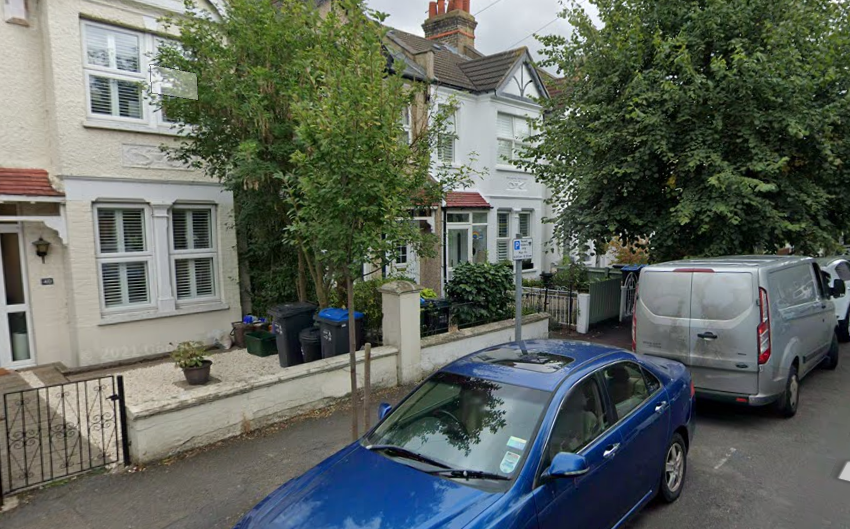Man hit with huge legal bill after selling home riddled with Japanese knotweed
Japanese knotweed is notorious for its habit of growing between brickwork and tarmac, ruining homeowners’ driveways, patios and drain
An accountant has been handed a £200,000 legal bill after selling a home riddled with Japanese knotweed.
Furniture designer Jonathan Downing found the dreaded Japanese knotweed lurking behind the garden shed after buying the home. He has won £32,000 in damages.
Mr Downing, 30, bought his three-bedroom house in affluent Prince George’s Avenue, Raynes Park, south west London, for £700,000 from chartered accountant Jeremy Henderson, 41, in August 2018.
Mr Downing planned to make his home in the Edwardian terraced property as well as building a workshop in the garden.
However, while tidying the garden soon after moving in, he discovered Japanese knotweed canes behind a large St John’s wort bush which was growing next to the shed, the Evening Standard reported.
This prompted Mr Downing to take legal action against Mr Henderson, accusing him of misrepresenting whether there was knotweed at the property when he sold it.
In a ruling at Central London county court, Judge Jan Luba KC found in Mr Downing’s favour, ordering Mr Henderson to pay £32,000 in damages plus his opponent’s legal bill of up to £95,000.

The court heard that during the sale, Mr Henderson had answered “no” on a form asking if the property had been affected by knotweed. He argued that he “reasonably believed” he was telling the truth when he filled in the form.
Mr Henderson claimed he could not see the knotweed because of the large bush, which also probably stunted the weed’s growth before it shot up when the shrub was cut back after Mr Downing moved in. But the judge heard evidence that the knotweed had been previously treated with herbicide, and may have once stood at around 2m tall.
What is Japanese knotweed?
Japanese knotweed is an invasive species, notorious for its propensity to spread and cause damage to building structures, as well as the difficulty and expense of getting rid of it.
Outlining the case, Mr Downing’s barrister Tom Carter said an expert said the weed had probably been in the garden since at least 2012, three years before Mr Henderson moved into the property.
Judge Luba, in his ruling, said: “Mr Henderson told me on oath that he genuinely did think there wasn’t any Japanese knotweed in his garden. He knew what it looked like and he had not seen any in the three years he had been there. His mother was a keen gardener and she made no report to him of Japanese knotweed.
“No previous owners had mentioned Japanese knotweed to him and none of the neighbours had Japanese knotweed in their gardens.
“Had that evidence stood alone, he would have amply satisfied me of his reasonable belief that there was no Japanese knotweed at his property.”

When the sale went through in 2018, Mr Henderson “chose to positively assert there was no knotweed at the property and thereby made a misrepresentation”, said Mr Carter.
Mr Downing sued for £32,000 to cover the costs of investigating and excavating the plant, as well as the diminution in value of his home caused by the knotweed incursion.
His barrister said there was no way that Mr Henderson could prove that he had a “reasonable belief” that there was no knotweed present at the time he filled in the seller’s forms.
“The defendant cannot discharge the burden on him of showing that he had reasonable ground to believe that the property was not affected by knotweed,” he said.
Judge Luba, in his ruling, said: “Mr Henderson told me on oath that he genuinely did think there wasn’t any Japanese knotweed in his garden. He knew what it looked like and he had not seen any in the three years he had been there. His mother was a keen gardener and she made no report to him of Japanese knotweed.
“No previous owners had mentioned Japanese knotweed to him and none of the neighbours had Japanese knotweed in their gardens.
“Had that evidence stood alone, he would have amply satisfied me of his reasonable belief that there was no Japanese knotweed at his property.”
Mr Henderson has been ordered to pay the £32,000 damages plus £65,000 of Mr Downing’s costs on account within 21 days. He will also have to shoulder his own legal costs.



Join our commenting forum
Join thought-provoking conversations, follow other Independent readers and see their replies
Comments